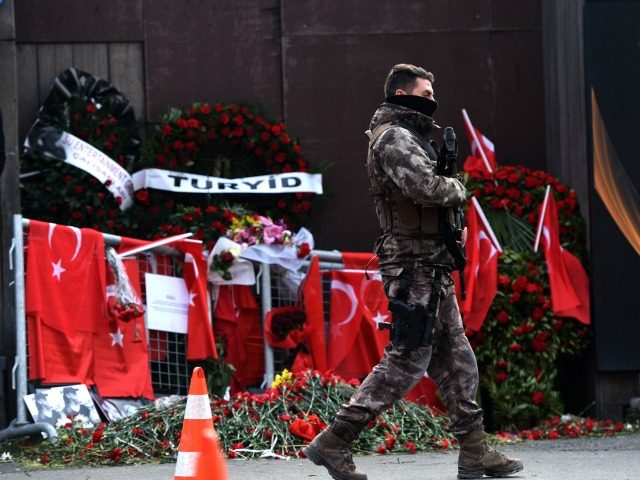ANKARA (AFP) – Elite Turkish police arrested several people Thursday during fresh raids over the nightclub attack that killed 39, as authorities tightened Turkey’s borders to prevent the fugitive killer from escaping.
Special forces detained several people suspected of links with the attack on the outskirts of Istanbul on Thursday, state-run news agency Anadolu said.
The agency did not say how many were arrested during the raids but said they were of Uighur origin from the Xinjiang region of China.
Police reportedly got a tip-off that individuals linked to the killer were hiding in the district.
Excluding the latest arrests, at least 36 had been detained in the probe by Wednesday, but the gunman himself remains on the run after giving police the slip in the aftermath of the massacre.
Authorities also tightened Turkish land borders, Dogan news agency reported, over fears the killer planned to flee the country.
The agency said checkpoints would be set up to search all vehicles and people leaving the country at border crossings in Edirne, western Turkey, which has a land border with Greece and Bulgaria.
Turkish Foreign Minister Mevlut Cavusoglu said on Wednesday that the attacker had been identified but did not give a name or further details.
In the early hours of Sunday, the gunman stormed the swanky Reina nightclub and sprayed 120 bullets at terrified partygoers celebrating New Year.
Of the 39 dead, 27 were foreigners including citizens from Lebanon, Saudi Arabia, Israel, Iraq, Morocco.
Authorities had on Tuesday detained 20 adults — along with 20 of their children — from three families in the Aegean city of Izmir.
They moved to Izmir on December 10 from the central city of Konya where they are suspected of being in touch will the killer during his stay there.
Police are investigating the possible links to IS of these suspects, who include Uighurs from the Xinjiang region, Kyrgyzs and suspects from the Russian Caucasus region of Dagestan.

COMMENTS
Please let us know if you're having issues with commenting.